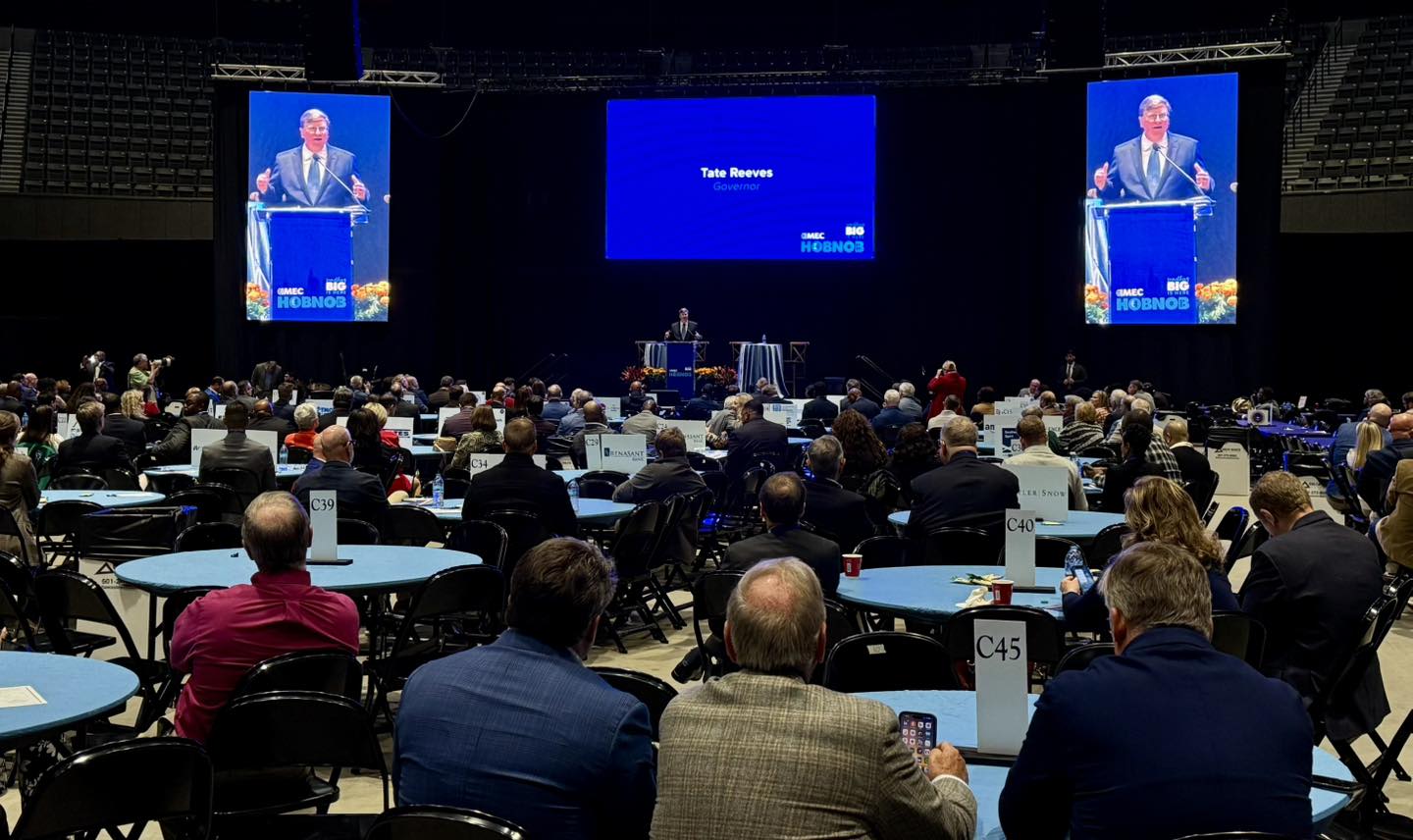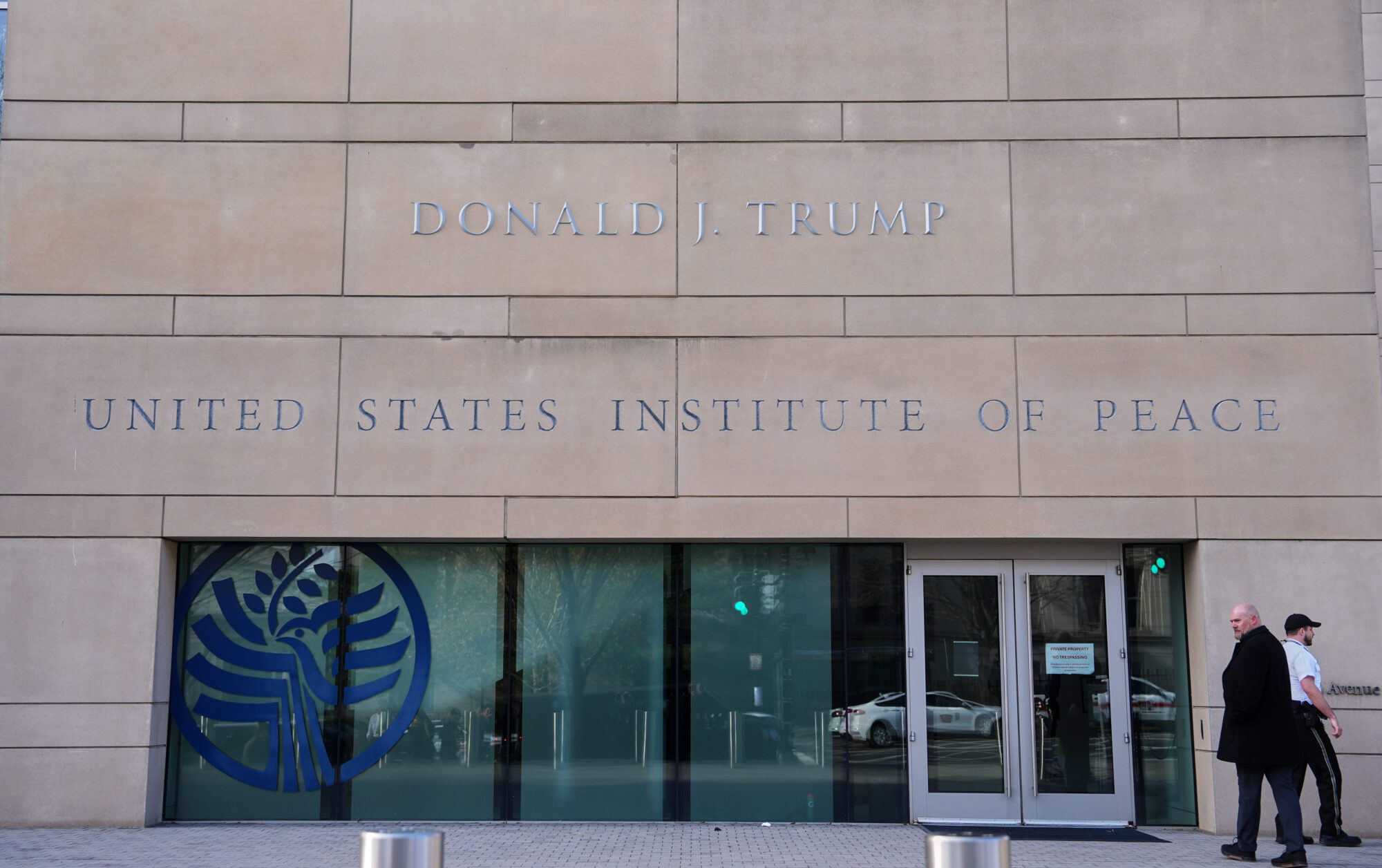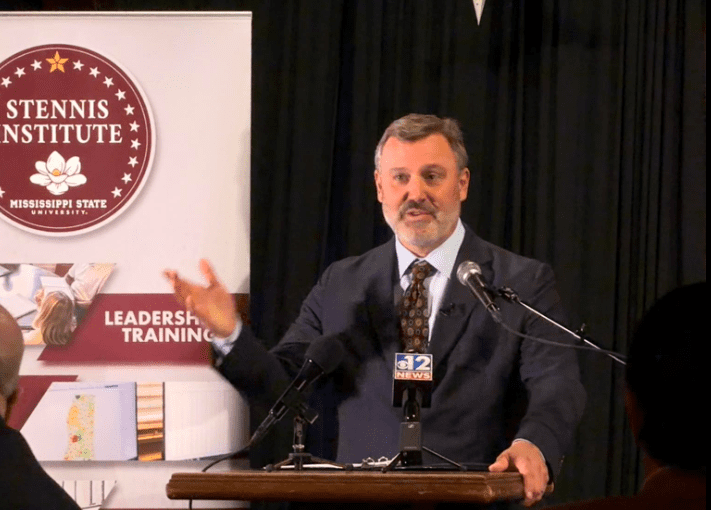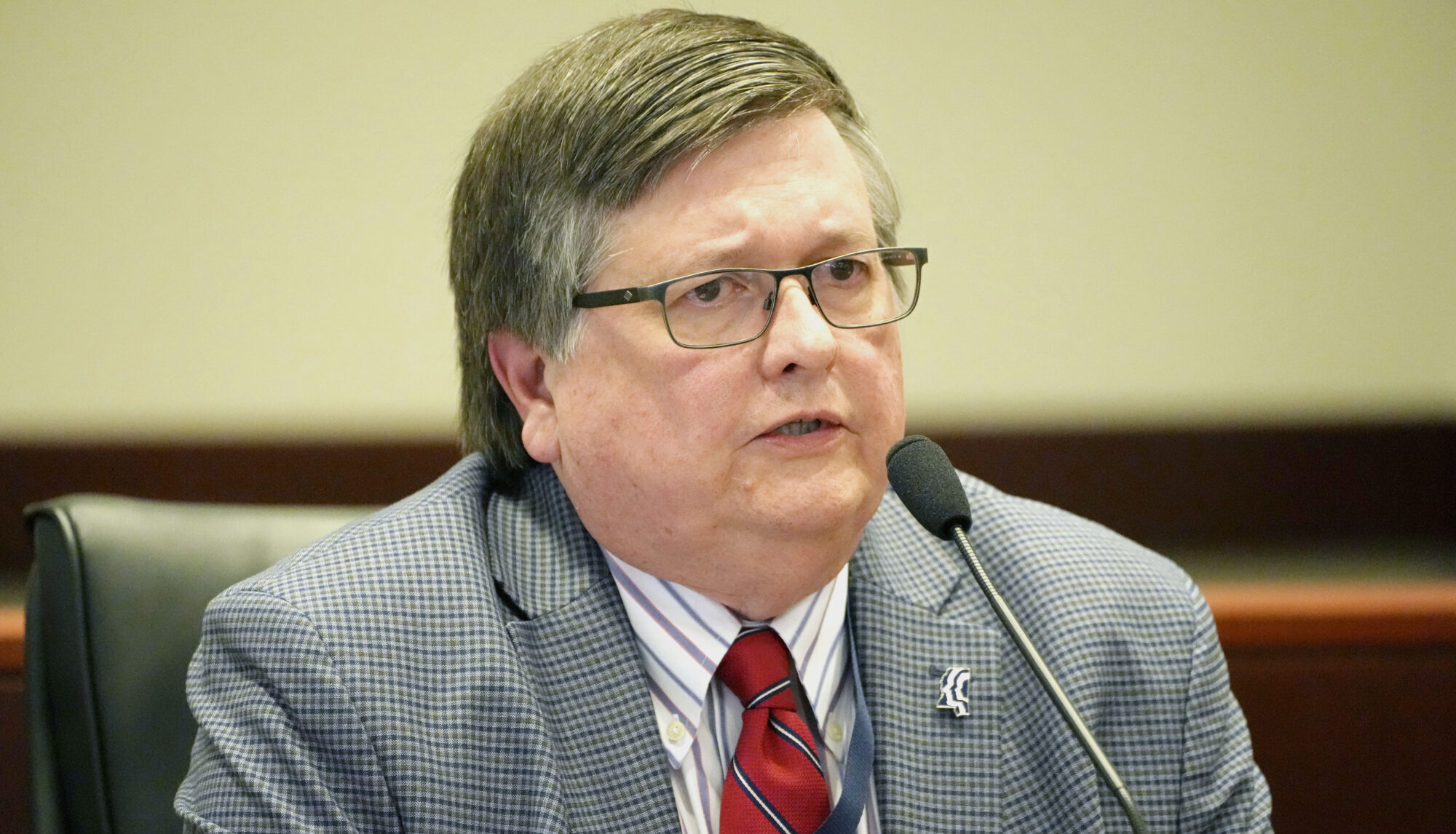
(Photo from Governor Tate Reeves on Facebook)
Listen to the audio version of this article (generated by AI).
- Attendees at MEC’s Hobnob heard from Governor Reeves, Speaker White, Lt. Governor Hosemann and more as education freedom and workforce development remain hot topics.
State leaders gathered in Jackson Thursday to map out their legislative agenda for the next session, with education reform being at the forefront of their legislative wish list.
During the Mississippi Economic Council’s Hobnob Mississippi event, elected officials and business leaders told the approximately 300 attendees the Magnolia State is making strides in key areas and should continue in that direction, especially in education.
“Our kids are learning more than ever before, and our educational achievement is the talk of America,” said Governor Tate Reeves (R), noting Mississippi leads the nation in fourth grade reading and math gains.
House Speaker Jason White (R) explained that education freedom will be the House’s No. 1 priority during the 2026 session. He said giving students and parents the right to make decisions about education is a “pillar” of the Republican agenda. Surrounding states have school choice; it’s time for Mississippi to join them, he said.
Businesses will also benefit from education freedom, White told the crowd, adding that the community has a stake in a better-educated Mississippi workforce. Community stakeholders want Mississippi to focus on workforce development, talent retention, and attracting economic development.
A cornerstone of the Mississippi House Republican plan is that the public funds follow the student to their school of choice. Speaker White said this allows parents to purchase homes in a desired neighborhood and accept a job transfer without requiring the student to leave the school they attend.
White asked that people “keep an open mind” on education freedom, saying rumors are already swirling around before a bill has been unveiled.
Showing frustration towards the Senate, White said there is a possibility of a bit of “deja vu” over the education bill. Last year, the House passed HB 1435, making it easier for students to transfer to another public school outside the district.
“That bill died in the Senate Education Committee without even a vote,” White said. “The House will continue to align with President Trump’s Parent Power.”
Lt. Governor Delbert Hosemann (R) did say this week that the Senate will see a similar bill come out of their chamber this week.
READ MORE: Hosemann says Senate will support public-to-public school transfers, signals opposition to broader proposals supported by President Trump
Speaker White ended his speech by stressing that educational freedom is not about politics; it’s about the students.
“This is important for Mississippi because every child is important,” he said.
When Lt. Governor Hosemann spoke, he outlined that there is more to improving education in the state than choice.
First, he said, teachers need to be paid their worth. A bill coming out of the Senate will focus on an across-the-board pay raise for K-12 and higher education teachers. In 2022, the Legislature approved the largest pay increase in state history to stay competitive with neighboring states. Yet, the state is still facing a shortage of teachers and other states have also raised their teacher pay over the last three years.
Hosemann is passionate about solving chronic absenteeism in schools. He said 24 percent of Mississippi students are chronically missing school. In some places of the Magnolia State, it is upwards of 50 percent.
“This is hurting the future workforce of Mississippi,” he said, adding that before the COVID pandemic, the state’s absenteeism rate was 13 percent.
To address the problem, Hosemann expects the Senate to fille a bill next session to place School Attendance Officers in every district, while increasing their pay to help address the issue.
“We need to get our kids back in school. If they aren’t in school chairs, that means they aren’t going to be in your chairs,” he told the group of business leaders.
While the Lt. Governor is pleased with the increases in Mississippi’s academic successes, he does not view it as the “Mississippi Miracle.”
“It’s not a miracle. When you prepare, it’s not a miracle. It’s Mississippi doing what we do best,” he said, “We prepared.”
The preparation included raises for educators, increased standards, providing technology aids, and more to bring up test scores.
The Senate will also attempt to realign state government, Hosemann said. Currently, the state has more than 200 agencies, which led him to call it “the Kudzu of government.”
“We need to take a clear-eyed look at the state government,” Hosemann said. “We need to reorganize government to be as nimble as your companies.”
In addition, the Senate will continue to investigate ways to make the Public Employees Retirement System, or PERS, solvent while assisting the state’s capital city will be at the forefront of the Senate legislative agenda, Hosemann said.
“We need Jackson to succeed,” he said. “I think there’s a movement in the House and Senate to do that.”
Following the speeches from the top state leaders, there was a brief discussion of the new Mississippi Business Alliance, a combination of the Mississippi Economic Council, the Mississippi Manufacturers Association, and the Business and Industry Political Education Committee.
“Mississippi needed a single authoritative and common voice for business,” MEC Chair John Hairston explained. “Policy makers were asking for clarity when it comes to legislative priorities.”
He said business owners were asking for alignment of the trade groups’ policies, and members were asking for them to become more impactful.











